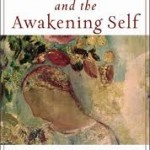 A few years ago, I was given a short book written by James Martin, SJ, Becoming Who You Are: Insights on the True Self from Thomas Merton and Other Saints
A few years ago, I was given a short book written by James Martin, SJ, Becoming Who You Are: Insights on the True Self from Thomas Merton and Other Saints. I read it quickly, and liked it well enough, but I recently picked it up again and I felt this time I was more ready to listen to what Martin had to say.
You may know Martin better from his two recent books, The Jesuit Guide to (Almost) Everything: A Spirituality for Real Life (a NYT Bestseller) and Between Heaven and Mirth: Why Joy, Humor, and Laughter Are at the Heart of the Spiritual Life
. He has great insights, and is becoming a writer I look to for guidance along the way and to push me think differently about…oh, I don’t know…life I guess.
Much of this short book (89 pages, plus) is a review of the life and writings of Thomas Merton and Henri Nouwen centering on the idea of, as the title tell you, Becoming Who You Are.
Martin explains by citing Merton from New Seeds of Contemplation:
For me to be a saint means to be myself,…Therefore the problem of sanctity and salvation is in fact the problem of finding out who I am and discvoering my true self” (p. ix).
These might be off-putting, even scary, words for those raised in a Christian faith where “we” are the problem that needs fixing. I mean, Jesus even said you have to lose your life if you want to find it.
But Merton is in fact saying just that. Note Merton speaks of “discovering my true self.” The true self is “the person we are before God and the person we are meant to be” (p. 18). The false self, by contrast, is “the person that we wish to present to the world, and the person we want the whole world to revolve around” (p. 19)
Martin cites Merton, again from New Seeds of Contemplation:
Thus I use up my life in the desire for pleasures and the thirst for experiences for power, honor, knowledge and love, to clothe this false self and construct its nothingness into something objectively real. And I wind experiences around myself and cover myself with pleasures and glory like bandages in order to make myself perceptible to myself and to the world, as if I were an invisible body that could only become visible when something visible covered its surface (p. 19).
I understand some might be tempted to think this is self-help psychobabble, but nothing could be further from the truth. True knowledge of oneself, and the process of transforming beyond the false self, is a lifelong, arduous process.
It takes courage to look deep inside ourselves and ask, “How well do I know myself? How bound am I to a life I have constructed for myself that on the surface has all the trappings of piety and faith, but in truth is rooted in jealousy, anger, fear, power, self-justification, control, and the like?”
As psychologist and spiritual writer David G. Brenner puts it in Spirituality and the Awakening Self: The Sacred Journey of Transformation:
Far too often we confuse our own spiritual self-improvement tinkerings with the much more radical agenda of God. The call of the Spirit–which is always gentle and therefore easily missed–is an invitation to abandon our self-improvement projects that are, in reality, little more than polishing our false self and become the unique hidden self in Christ that we have been from all eternity (p. 33).
It is a sad thing when one’s faith in God is an expression of the false self: judgmentalism, us vs. them thinking, theological pride, overweening attention to rules and regulations, etc.
A faith that is simply an expression of the false self is mere religion. But when flowing from a knowledge of the true self–which is a work prompted by the Spirit, if we are willing to listen–faith becomes love of God and love of neighbor. This is what Merton means when he says, “For me to be a saint means to be myself.”
I think there is much wisdom here.











